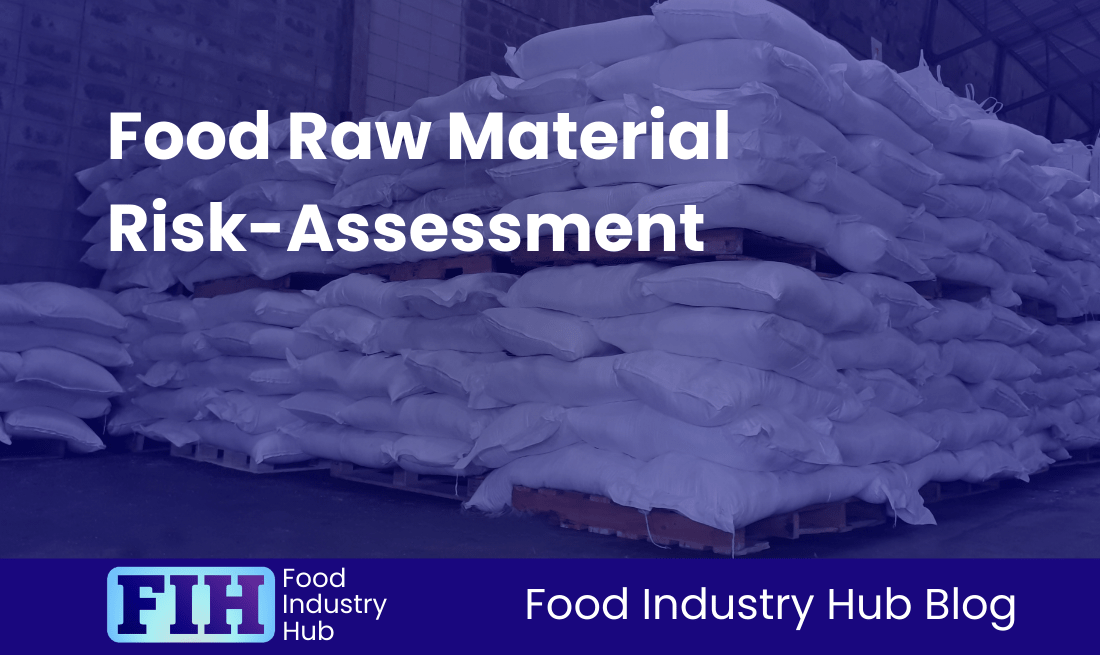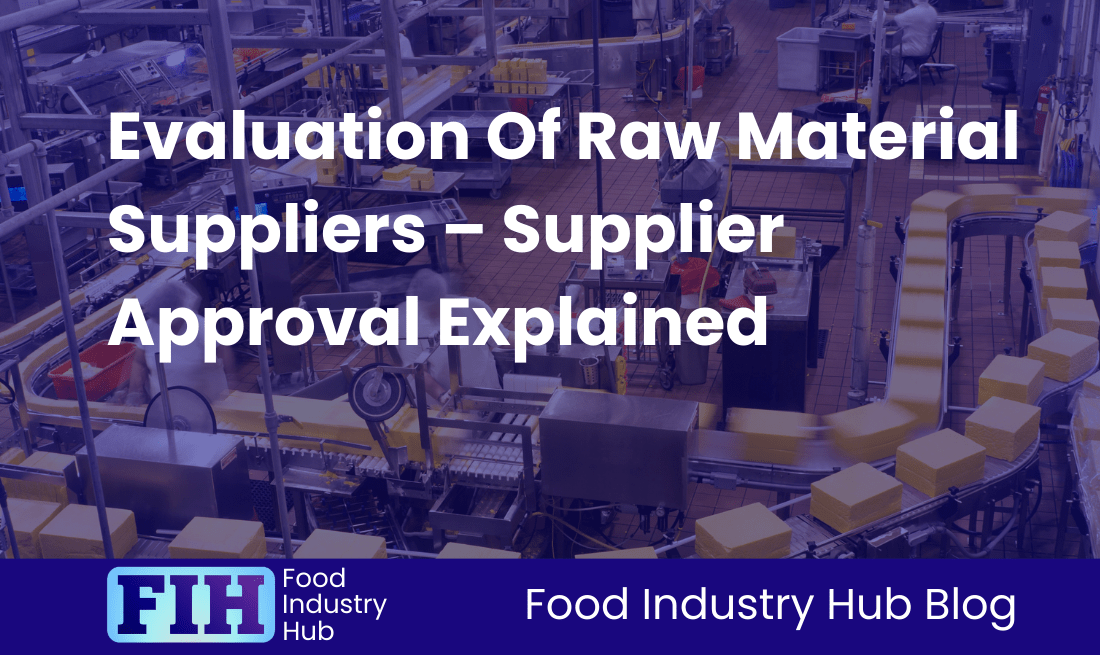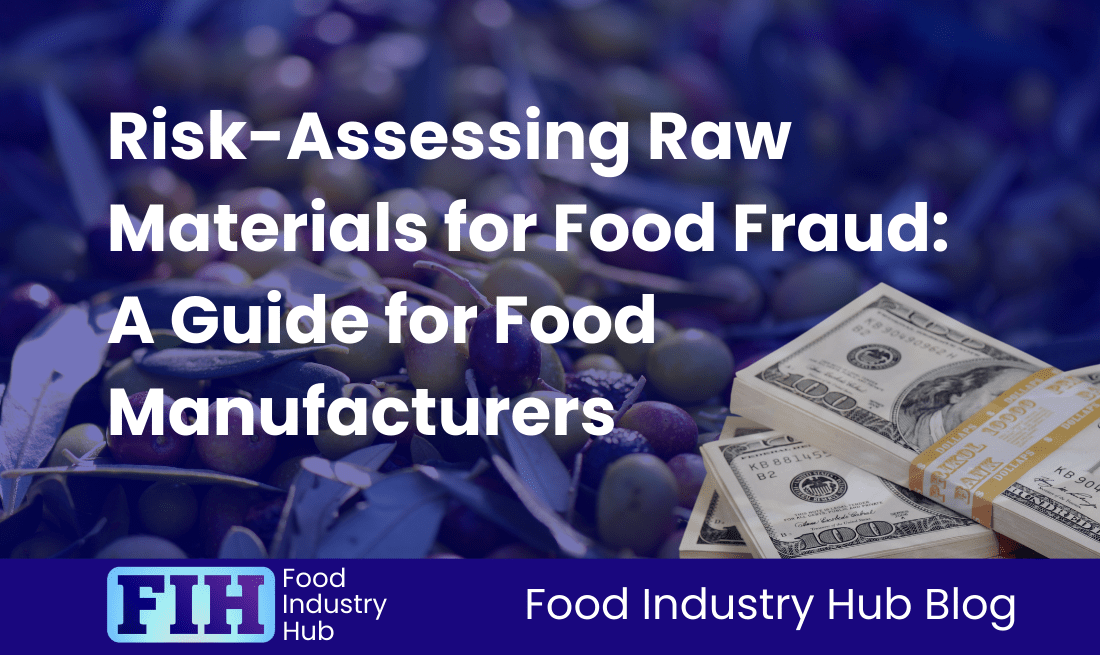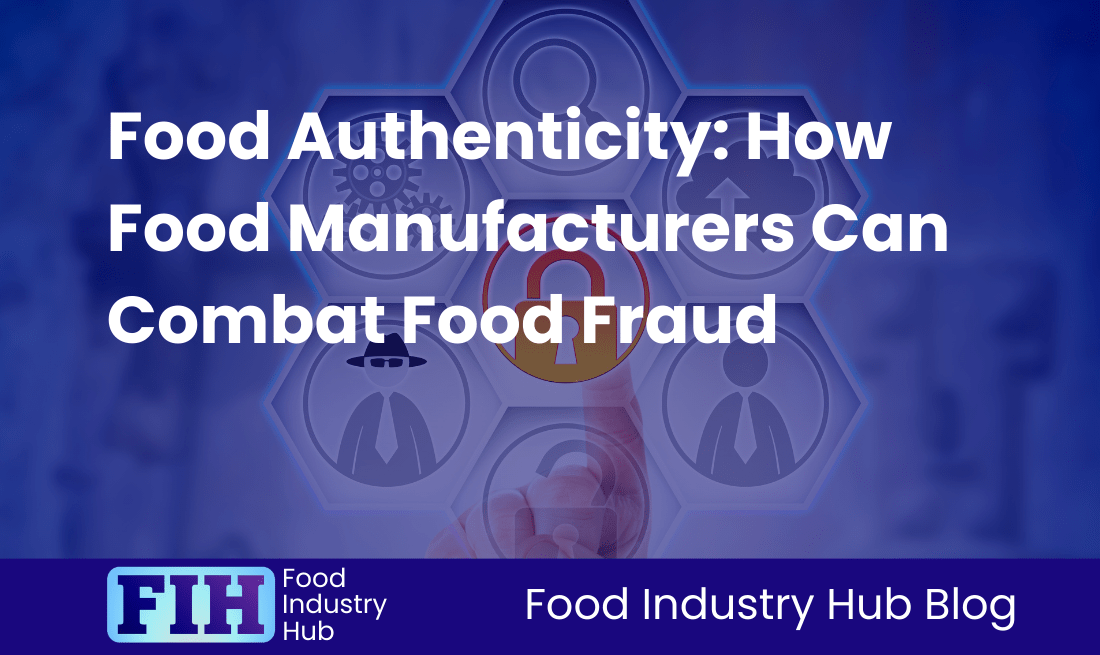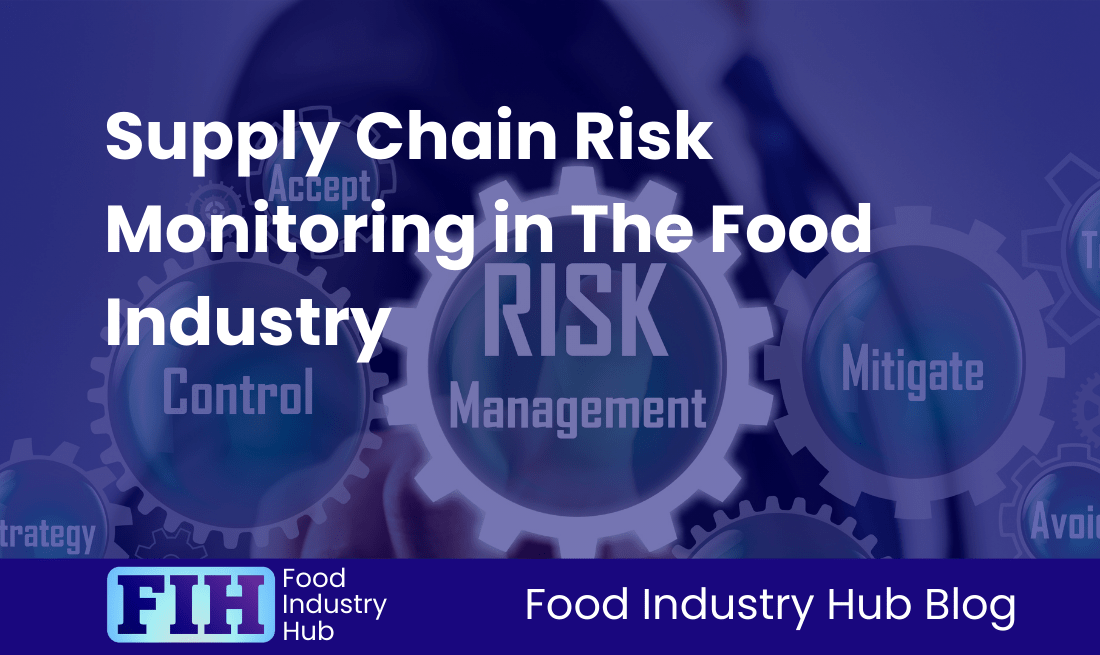Know: Ingredient Sourcing and Supplier Management
Introduction
In the food manufacturing sector, the significance of ingredient sourcing and supplier management are increasingly coming to the forefront. These processes have become a focal point, as they play foundational roles in maintaining product quality and safety, while concurrently addressing issues of regulatory compliance, sustainability, and authenticity. This necessity is especially pronounced in light of recent hurdles, such as disruptions to the global supply chain, the rising demands for sustainably sourced ingredients, and the continuous fight against food fraud.
Understanding Ingredient Sourcing and Supplier Management
Ingredient sourcing refers to the process of identifying and procuring high-quality ingredients from suppliers, in compliance with established regulatory standards. This process incorporates strategies for managing risks related to supply chain disruptions and ensuring product authenticity. In contrast, supplier management entails the collaborative efforts to build and sustain relationships with suppliers. The objective is to ensure consistent quality, reliability, and adherence to regulatory requirements. Integral components of this process include regular audits, performance assessments, and joint strategies to mitigate risks and enhance supply chain operations.
The Significance of These Processes in Food Manufacturing
The essentiality of ingredient sourcing and supplier management in food manufacturing cannot be overstated. High-quality ingredients are not only key for maintaining product safety, quality, and shelf life, but they also play an instrumental role in ensuring the legality of products in the marketplace. Observing the regulations laid out by governing bodies such as the FSA, FDA and EFSA is necessary to prevent legal ramifications and to sustain a presence in the market. There is also an importance placed on the authenticity of ingredients as it offers a line of defence against fraudulent practices in the supply chain, safeguarding both consumers and brands.
Major Themes in Ingredient Sourcing and Supplier Management
This discourse will touch on several key subjects pertinent to ingredient sourcing and supplier management: the fundamental aspects of ingredient sourcing, best practices of supplier management, compliance and legal considerations, tactics for countering food fraud and ensuring authenticity, strategic supplier management for risk mitigation, along with the significance of ethical and sustainable sourcing practices. By probing these subjects, food manufacturers may enhance their methodologies, ensuring compliance while securing a competitive advantage in a swiftly changing market.
Key Takeaways
Effective ingredient sourcing and supplier management are essential components for businesses in the food industry. They play a vital role in shaping product safety, adherence to regulations, and overall business resilience. This section presents an overview of important strategies and best practices relevant to these aspects.
Adherence to Food Safety Practices
Practising food safety measures such as Hazard Analysis Critical Control Point (HACCP) and Good Manufacturing Practices (GMP) are integral to ensuring the safety and quality of food products. HACCP focuses on the identification and management of possible hazards throughout the production process, and GMP establishes standard procedures that maintain consistency and safety. These methodologies not only reduce the risk of foodborne illnesses but also promote regulatory compliance. Thorough documentation is essential as it can substantiate audits and demonstrate commitment to safety protocols, which in turn can increase consumer trust.
Robust Supplier Evaluation and Onboarding Process
The importance of a thoroughly implemented supplier evaluation and onboarding process is well understood. It ensures potential suppliers are rigorously vetted for their capability to meet the required regulatory and quality standards. This process includes data collection of compliance documentation, setting up communication channels, and defining expectations. In addition, regular audits and performance assessments play a significant role in maintaining supplier accountability and quality assurance.
Regulatory Compliance for Ingredient Sourcing
Being proactive in regulatory compliance is mandatory for legal ingredient sourcing. It is advisable for businesses to consistently monitor their suppliers for abidance to applicable laws and to maintain detailed records to support compliance efforts. Adopting this proactive approach can reduce the risks associated with non-compliance that could potentially harm both brand reputation and operational stability. Practising rigorous record-keeping ensures that all sourcing activities can be traced and remain transparent, which further protects the integrity of the supply chain.
Combating Food Fraud
Addressing food fraud requires thorough supplier verification processes and the utilisation of innovative testing methods. Companies are advised to implement comprehensive background checks and performance evaluations to confirm supplier credibility. Digital systems can greatly improve traceability and transparency within the supply chain, allowing for real-time ingredient tracking and assuring the authenticity of food products.
Strategic Supplier Management
Strategic supplier management plays a significant role in risk mitigation. Opting for diversified supplier sources reduces dependence and vulnerability towards supply chain disruptions. Effective management of supplier contracts is of the essence for clear expectation settings and compliance management. Leveraging predictive analytics can also equip companies to anticipate potential risks and adapt their strategies accordingly, increasing resilience in an ever-evolving supply chain environment.
Sustainable Sourcing Practices
A growing influence of environmental regulations and a heightened consumer demand for transparency says a lot about the importance of ethical and sustainable sourcing practices. Companies are increasingly being tasked to adopt strategies that minimise environmental impact whilst ensuring fair labour practices. Matching up to these expectations not only bolsters brand reputation but also aligns with consumer values, giving businesses a competitive advantage in the market.
By concentrating on these key areas, food manufacturers stand a better chance at improving their ingredient sourcing and supplier management processes. These best practices not only ensure compliance and safety but also position these businesses to prosper in a market that is becoming more and more conscientious.
Food Industry Hub Management Systems can significantly boost the effectiveness of your food safety and quality management system, leading to improved confidence and elevated quality assurance throughout your operations.
Fundamentals of Ingredient Sourcing
Ingredient sourcing is an intricate process in the food manufacturing industry, encompassing a myriad of aspects from quality control standards through to traceability requirements. This overview aims to elucidate these key components that play a significant role in achieving high-quality, safe, and legal food products for consumers.
Insight on Quality Control Standards: Overview of Essential Standards (HACCP, GMP)
Quality control is integral to ingredient sourcing, helping to ensure safe and high-quality food products. Two central standards are HACCP (Hazard Analysis and Critical Control Points) and GMP (Good Manufacturing Practices).
HACCP: This systematic approach aids in the identification, evaluation, and control of food safety hazards. By focusing on key points during the production process, it minimises risks associated with allergenic, biological, chemical, or physical contamination. The application of HACCP enables food manufacturers to proactively manage safety and compliance with regulatory standards, thus mitigating any potential recalls or safety breaches.
GMP: These essential practices serve to assure that products are consistently produced and controlled in line with quality standards. GMP guides all aspects of the production process, from procurement to the handling and processing of raw materials, aiding in maintaining operational safety and consistency. Adherence to GMP is pivotal in mitigating risks related to product contamination and certifying the safety and efficacy of the ingredients.
Sourcing ingredients from suppliers certified to GFSI-benchmarked assurance schemes is an effective way of introducing assurances of dependable HACCP and GMPs enacted by raw material manufacturers, but verification of HACCP and GMPs should be an active consideration – regardless of the approval method for the manufacturers used.
Balancing Cost and Availability: Cost-Effective Sourcing Strategies
Establishing a balance between cost-effectiveness and ingredient availability without sacrificing quality is important within the food manufacturing industry. Considerations toward sourcing strategies include:
Supplier Diversification: By collaborating with multiple suppliers for each ingredient, reliance on a single source is reduced. This strategy guards against risks linked to price fluctuations and supply shortages, while allowing manufacturers to compare both pricing and quality among different vendors, thus enhancing procurement decisions.
Local Sourcing: Sourcing ingredients locally can have numerous benefits: it can not only reduce transportation costs, but also sustain local economies and environmental sustainability initiatives. Local sourcing resonates well with consumers, who increasingly prefer locally sourced products, enhancing brand perception and fostering customer loyalty.
Long-term Supplier Relationships: Building long-term collaborations with key suppliers can ensure advantageous pricing and consistent availability, even amidst market instability. Such partnerships can also lead to improved quality control, as suppliers who are entrenched in the partnership are likely to prioritise quality assurance.
Importance of Traceability Requirements: A Cornerstone for Quality and Safety
Traceability is key in ensuring the quality, safety, and legality of food products. It enables manufacturers to follow the lifecycle of ingredients from their origins to the final product, thereby facilitating prompt and effective responses to potential safety issues:
Documentation and Compliance: Keeping meticulous records, inclusive of supplier information, batch numbers, and processing details, is necessary for meeting regulatory requirements and enables quick action in the event of food safety incidents or recalls.
Technological Innovations: Digital systems revolutionise traceability by enhancing real-time tracking capabilities, offering transparency into the supply chain and assuring stakeholders of the integrity and safety of ingredient sourcing.
A comprehensive traceability system not only amplifies compliance but also garners consumer trust, a significant aspect in maintaining brand integrity and retaining a competitive advantage in today’s market, so verification of robust traceability capabilities should be fundemantal to approval of ingredient suppliers.
Supplier Management Best Practices
Supplier Selection: Quality, Regulatory Compliance, and Sustainability
In the food manufacturing industry, the selection of suppliers plays an instrumental role in maintaining an integral supply chain. The primary factors to consider include quality, regulatory compliance, and sustainability. It is essential that suppliers meet and align with the industry food safety standards and ingredient specifications, commonly evidenced by HACCP, ISO 22000, or certification to a GFSI-benchmarked assurance scheme such as BRCGS, IFS, or FSSC 22000 [Source: Food Safety Magazine].
Regulatory compliance carries the same weight, as suppliers are required to comply with food safety regulations enforced by authorities such as the FDA, USDA, or their European equivalents. Non-compliance could lead to serious legal and safety repercussions for food manufacturers.
Sustainability practices are increasingly influential in supplier relations, with a growing trend of manufacturers preferring partners committed to environmental and social responsibilities. Thus, selecting suppliers that demonstrate sustainable sourcing practices can refine a company’s environmental footprint and align with consumer expectations of corporate social responsibility.
Emphasis on Performance Evaluation
Appraising supplier performance consistently is key to maintaining high standards within the supply chain. Engaging methods like regular audits assist manufacturers to proactively spot compliance discrepancies and performance gaps. Essential metrics include on-time delivery rates, defect rates, and compliance with established quality standards. These measures serve not only to quantify supplier reliability but also promote constant improvement within the supply chain.
Besides formal assessments, it’s beneficial to establish feedback mechanisms with suppliers to maintain clear communication, thereby promoting mutual learning and swift resolution of operational issues.
Crisis Management Planning
Potent crisis management planning aids in mitigating potential disruptions in the supply chain. This involves formulating contingency plans that accommodate various uncertainties such as supplier insolvency, natural disasters, or sudden changes in regulatory landscape. Pre-emptively identifying alternate suppliers is a strategic move for minimising supply chain disruptions during crises.
Continuous risk assessment should be part of the crisis management plan. Manufacturers can proactively scheme strategies to counter identified risks by assessing potential weaknesses in the supply chain, such as reliance on single-source suppliers. This proactive planning is essential for maintaining customer trust and ensuring constant product availability.
Significance of Collaboration and Communication
Proactive collaboration and open communication with suppliers form the underlying structure of efficient supplier management. Frequent communication not only reduces misunderstandings but also provides timely solutions to emerging challenges. For example, clear expectations set through well-drafted contracts and continuous communication ensure both parties understand quality and compliance requirements.
Forming strategic partnerships boosts collaboration, as these relationships stimulate innovation and improvements in supply chain processes. Joint efforts in areas such as product development or shared sustainability initiatives can lead to substantial benefits for manufacturers and suppliers alike. Establishing beneficial partnerships not only elevates ingredient quality but also strengthens compliance with food safety regulations, ultimately benefiting the consumers and the brand’s reputation.
Sign-up for the Food Industry Hub Mail Service
We regularly produce new content for food industry professionals, and the Food Industry Hub Mail Service is the best way to stay up to date with the latest additions.
Signup today to be added to the Food Industry Hub mailing list.
Compliance and Legal Issues
Regulatory compliance holds a significant place when managing the ingredient sourcing and supplier relationships in the food manufacturing industry. This not only ensures safety, legality, and ethical sourcing of food products but also influences the company’s reputation significantly. Three major regulatory components concerning this aspect are the Food Safety Modernization Act (FSMA) prevalent in the U.S., the European Food Safety Authority (EFSA) in the EU, and the Food Standards Agency (FSA) in the UK.
Overview of Regulatory Frameworks: Key Regulators Influencing Ingredient Sourcing
Regulations regarding ingredient sourcing are comprehensive and designed to safeguard consumer safety and uphold high-quality standards:
In the USA, the Food Safety Modernization Act (FSMA), administered by the Food and Drug Administration (FDA), stresses a proactive approach to food safety. It necessitates encompassing oversight of ingredient sourcing and supplier management, and requires food manufacturers to put in place preventive controls and a solid supply chain management system.
In the EU, the European Food Safety Authority (EFSA) governs food safety and has regulations focusing on risk assessment, traceability, and proper labelling practices. The EU’s General Food Law Regulation mandates that all food products be traceable and demonstrate safe sourcing practices.
In the UK, despite Brexit, the Food Standards Agency (FSA) continues to enforce regulations assuring food safety and quality control, aligning closely with previous EU regulations while adapting to new local standards. This compliance framework makes certain that food businesses maintain high standards of safety practices throughout their sourcing processes.
Overview of Regulatory Compliance
The FSMA puts a special emphasis on preventive controls by implementing comprehensive food safety plans. The act prioritises the Foreign Supplier Verification Program (FSVP) that mandates importers to ensure their foreign suppliers comply with U.S. food safety standards. As a result, companies need to maintain regular supplier approval processes and thorough documentation for compliance and effective risk management in ingredient sourcing [Source: Food Safety Magazine].
The EFSA plays a core role in the EU, assessing food safety risks and influencing global sourcing practices. Even suppliers outside the EU have to meet certain safety assessments to export their products.
In the UK, the FSA enforces legal standards in food safety through its regulations. Traceability and documentation are two main areas manufacturers have to focus for legal and safe ingredient sourcing.
Compliance with Documentation Requirements
Accurate record-keeping is a significant part of regulatory compliance and healthy supplier relationships. Here’s why clear documentation is needed:
- Verification of Compliance: Detailed records provide evidence of adhering to FSMA, EFSA, and FSA regulations during audits. These documents should include supplier approvals, hazard analyses, preventive controls, and monitoring activities, among others.
- Traceability: Keeping comprehensive records helps in tracing ingredients through the supply chain during recall or contamination incidents. High-risk food products need traceability protocols for compliance, requiring detailed documentation of all ingredients and suppliers.
- Audit Preparedness: Proper documentation enhances readiness during inspections by regulatory bodies, reducing the risk of penalties from non-compliance.
A sturdy documentation framework includes supplier approvals, detailed audits, and risk assessments, steering the compliance efforts in ingredient sourcing.
Handling Regulated Products
The legality and safety of regulated ingredients depend largely on how they’re handled. Here are some guidelines to aid food manufacturers:
- Risk-Based Sourcing:Thorough hazard analyses for each ingredient help manufacturers identify possible risks. These evaluations then guide supplier selection and implementing preventive controls.
- Supplier Approval Processes: Compliance with FSMA and similar frameworks needs careful evaluation of suppliers based on their adherence to food safety practices, encompassing methodologies like Hazard Analysis Critical Control Points (HACCP) and Good Manufacturing Practices (GMP).
- Compliance Monitoring: Regular audits and ongoing supplier evaluations are vital for effective management of compliance risks. This includes maintaining open communication regarding any regulatory updates and assuring the suppliers meet food safety standards consistently.
As the regulatory environment evolves, food manufacturers need to stay proactive in their compliance strategies, adjusting their ingredient sourcing and handling practices to meet legal requirements and prioritise consumer safety.
Fighting Food Fraud and Verifying Authenticity
It is indispensable for food manufacturers to establish vigorous supplier verification processes in their battle against food fraud. A comprehensive vetting strategy can secure ingredient authenticity through an array of robust measures:
Incorporate Supplier Verification Processes
- Background Checks: Manufacturers need to conduct meticulous investigations of potential suppliers. This includes reviewing their certifications, licenses, and conformity to food safety standards. Such thorough due diligence minimises risks related to sourcing and upholds quality expectations.
- Site Audits: Regular site visits and audits allow manufacturers to firsthand assess suppliers’ operational adherence to safety and quality standards. It helps spot any discrepancies or potential non-compliance, paving way for timely corrective actions.
- Ongoing Monitoring: Instituting a dynamic supplier monitoring system with routine audits and product sampling can help maintain compliance. Such keen observance not only identifies deviations from standards but also underlines the significance of supply chain integrity.
- Specification Requirements: Clarity and precision in raw materials’ specifications are required to guide suppliers. These documents should underscore quality expectations, authenticity requirements, and regulatory standards compliance, thereby reducing ambiguity and setting clear paths for compliance.
- Building Trust: Nurturing longstanding relationships with suppliers encourages transparency and opens channels for communication about sourcing practices. This cooperative approach reinforces defence against fraud and highlights a shared commitment to quality.
Importance of Testing for Adulteration
Testing is key to preserving the integrity of food products and necessitates employing inventive analytical methods:
- Chromatography and Mass Spectrometry: Advanced techniques such as gas chromatography-mass spectrometry (GC-MS) and liquid chromatography-mass spectrometry (LC-MS) are core to detecting food adulterants. Their precision and sensitivity allows for the identification of contaminants, even at infinitesimal levels [Source: NIH].
- Spectroscopy: Techniques like nuclear magnetic resonance (NMR) and infrared (IR) spectroscopy have also seen use due to their quickness in verifying product authenticity. Offering non-destructive ways to evaluate food quality, they contribute a great deal in preventing fraud [Source: Technology Networks].
- Chemometric Techniques: Methods such as Principal Component Analysis (PCA) aid in breaking down complex datasets obtained from food testing. Interpreting this data is necessary for detecting fraud patterns and maintaining authenticity compliance.
- Automated Monitoring Systems: Incorporating electronic sensors and biosensors for real-time monitoring can prompt early detection of potential adulteration, safeguarding consumer safety and upholding brand trust.
By applying comprehensive supplier verification processes, widely employing advanced testing methods, and utilising technology for increased transparency, food manufacturers can effectively counter food fraud and ensure ingredient authenticity, consequently maintaining consumer trust and ensuring food safety.
Strategic Supplier Management for Risk Mitigation
Within the food manufacturing industry, effectively managing suppliers is essential for mitigating ingredient sourcing risks. This process encompasses several key strategies.
Importance of Diversification
In reducing dependence on a single supplier and mitigating supply chain risks, supplier diversification plays a leading role. It allows food manufacturers to source their ingredients from a plethora of suppliers dotted across diverse regions; this minimises vulnerability to disruptions instigated by geopolitical conflicts, natural disasters, or market shifts. An expansive supplier base acts as a safety net, allowing businesses to flexibly adapt to fluctuating circumstances while maintaining consistent operations and sidestepping the downtime that threatens product availability.
Diversification offsets risk and stimulates competition amongst suppliers. This heightened rivalry can contribute to reduced costs and ameliorated goods quality, thereby equipping manufacturers with a strategic edge. For instance, the imposition of tariffs on imports from certain regions underscores the necessity of a diversified supplier strategy, aiding businesses in alleviating the financial strains tied to limited source reliance. Strategically diversifying one’s supplier network can foster enhanced operational agility and spur innovation, perpetually augmenting product quality and market competitiveness.
Role of Contract Management
Contract management is an irreplaceable element in securing quality standards and regulatory compliance across supplier relationships. A comprehensive contract should clearly define key terms, including quality specifications, regulatory conformity prerequisites, and performance gauging metrics.
Contracts should be meticulous in outlining quality standards, obliging all suppliers to unfailingly adhere to prevailing safety and quality expectations, as stipulated in the product specification and quality attribute sheet. This focus on meeting requirements not only defends the integrity of the product but also insulates the business from the legal and reputation-related repercussions that could emanate from non-compliance.
Contracts should also factor in a degree of divergence to mitigate unforeseen supply chain interruptions, letting manufacturers alter terms as required, without imperiling long-standing supplier relationships. The inclusion of performance metrics serves the dual purpose of ongoing supplier monitoring and prompt issue resolution within the supply chain process.
Employing Predictive Analytics
Predictive analytics have emerged as an indispensable tool in the food production sector, enabling enterprises to anticipate supply needs and proactively identify potential disruptions. By harnessing historical data synergistically with real-time insights, food manufacturers can formulate accurate forecasts for ingredient demand; hence, ensuring inventory levels align with market requirements, while simultaneously curtailing waste.
Utilisation of predictive modeling empowers food manufacturers to simulate a variety of supply chain scenarios, aiding in disaster preparedness. This practice not only amplifies supply chain transparency but also facilitates early detection of potential bottlenecks to prevent them from snowballing into significant disruptions. With data gathered from multiple aspects—such as market trends, weather patterns, and supplier performance—predictive analytics equip businesses with necessary foresight for managing supply chain risks and refining procurement strategies.
By integrating practices like supplier diversification, robust contract management, and predictive analytics, food production companies amplify their operational resilience. This multifaceted approach not only strengthens their capacity to manage risks inherent in ingredient sourcing but also ensures their products adhere to pertinent quality and safety standards within a complex market environment.
Ethical and Sustainable Sourcing Practices
Influence of Environmental Regulations
Environmental regulations have an overwhelming effect on sustainable sourcing practices within the food manufacturing industry. Governments worldwide are progressively implementing laws tailored to minimise environmental damage and advance sustainability. Regulations surrounding emissions, waste management, and water usage incite companies to adopt sustainable practices. These initiatives may include regenerative agriculture and sourcing local ingredients, positively impacting their overall carbon footprints. Non-conformance risks potential hefty fines and damage to reputation—this risk prompts businesses to explore sustainability measures that can improve their operational efficiencies.
Impact of Consumer Demand for Transparency
Today’s consumers are becoming increasingly aware of the sourcing and production methods behind the food they consume. This rising demand for transparency has driven food manufacturers to place significant importance on ethical sourcing practices. Consumers now seek information about the origins and creation of their products, compelling companies to implement comprehensive traceability systems. These systems equip consumers with the ability to track their food’s journey from farm to table, solidifying trust and brand loyalty. The escalating preference for products, emphasising environmental sustainability and ethical production, prompts businesses to align their sourcing strategies with these principles, increasing competitiveness in a market driven by consumer consciousness.
Importance of Certification Standards
Certification standards are fundamental in advancing ethical and sustainable sourcing practices within the food manufacturing industry. Programmes such as Fair Trade, Organic, and certifications from organisations like the Forest Stewardship Council (FSC) provide a much-needed framework ensuring suppliers comply with specified social and environmental criteria. Besides reinforcing consumer trust, these certifications give businesses an advantage by visibly aligning brand values with consumer expectations. Companies complying with these standards also mitigate regulatory risks and can cater to a growing segment of consumers willing to pay a premium for ethically sourced products.
The incorporation of sustainable sourcing practices driven by regulatory requirements, consumer demands for transparency, and adherence to certification standards equips food manufacturers to navigate today’s market complexities effectively. These strategies not only strengthen product reliability but also play a part in achieving the overarching sustainability goals of the industry.
Conclusion
In the industry of food manufacturing, it is essential to revisit key themes in ingredient sourcing and supplier management. Having a coherent understanding of these themes plays a significant role in operational success.
Recap of Major Themes
Fundamentals of Ingredient Sourcing
Identifying the specific needs of a food manufacturing operation is the foundation of ingredient sourcing. It entails comprehensive market research to locate dependable vendors and a meticulous understanding of supplier capabilities. Quality and safety standards must be met by all ingredients, creating a firm foundation for the supply chain [Source: Food Standards Agency].
Supplier Management Best Practices
A resilient supply chain relies on effective supplier management. Implementing performance indicators can allow companies to recognise and address potential issues timely, ensuring continuity of supply.
Compliance and Legal Issues
Adhering to food safety regulations and legal standards is a must in food manufacturing. Quality assurance systems and comprehensive documentation practices, coupled with regular audits, guarantee traceability and ongoing compliance in the supply chain.
Fighting Food Fraud and Verifying Authenticity
The current era is filled with significant risks related to food fraud. Introducing stringent verification protocols and enhancing supplier transparency are necessary measures to maintain the integrity of products. Routinely using innovative technologies and audits can help deter fraudulent practices.
Strategic Supplier Management for Risk Mitigation
Identifying potential risks within the supply chain is integral to strategic supplier management. This strategy involves the use of risk assessment tools to help food manufacturers respond to and minimise the impact of disruptions.
Ethical and Sustainable Sourcing Practices
In light of consumers’ increasing demands for transparency and ethical considerations, food manufacturers must reflect these values in their sourcing practices. Such an approach can enhance brand reputation and foster customer trust and loyalty.
Relevance to Effective Operations
Mastering these themes is essential for food manufacturing companies. They help ensure compliance with regulatory requirements and pave the way for alignment with evolving market demands. Effective management of ingredient sourcing and supplier relations can lead to improved product quality and safety. It can also reduce risks associated with fraud, supply chain disruptions, and legal liabilities, bolstering operational efficiency and market competitiveness.
Future Perspectives
Constant vigilance and a preparedness to adapt are vital as the food manufacturing industry continues to transform. Technological advancements such as digital traceability systems and artificial intelligence promise to revolutionise supply chain transparency and efficiency. By adopting these technologies, food manufacturers can enhance compliance, anticipate market shifts, and meet consumer preferences more effectively. Regular engagement with industry updates will help companies navigate this dynamic landscape and maintain a competitive edge.
About The Food Industry Hub Knowledge Centre
The Food Industry Hub knowledge centre delivers informative content on a variety of topics pertinent to the food manufacturing industry.
You can return to all topics by clicking here.
From The Food Industry Hub Signposting Service
Additional resources from The Food Industry Hub Signposting Service.
From The Food Industry Hub Blog
Expanding on this topic with related content from our blog.

